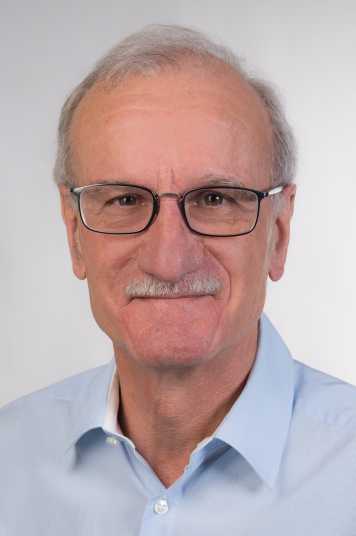Eschenmoser Lecture 2019
Prof. Andreas Pfaltz

Professor Andreas Pfaltz: recipient of the 2019 Eschenmoser Lectureship, studied chemistry at the ETH Zürich and earned his Ph.D. from doctoral research with Prof. Albert Eschenmoser in 1978. Following postdoctoral work as a Swiss National Science Foundation fellow with Prof. Gilbert Stork at Columbia University, Professor Pfaltz came back to ETH to start his independent research. He joined the faculty of the University of Basel as Associate Professor in 1990 and was promoted to Professor of Chemistry in 1993. In 1995 he accepted a Directorship at the Max Planck Institute of Coal Research in Mülheim and moved back to the University of Basel in 1999 where he has been Professor of Chemistry until becoming Professor Emeritus in 2015.
Andreas Pfaltz is a pioneer of asymmetric synthesis and catalysis. His first seminal contribution was bioinspired semicorrin-copper complexes for stereoselective cyclopropanation reactions. His bisoxazolines, known as BOX ligands, deeply influenced the development of related C2-symmetric bidentate ligands for late transition state metals and found numerous applications in asymmetric catalysis. Building on thorough steric and stereoelectronic considerations, he later developed bidentate phosphinoxazolines (PHOX) ligands, which became privileged ligands for asymmetric catalysis. Among them are highly reactive metal complexes for stereo- and regioselective allyl substitution reactions and hydrogenations of even the most challenging substrates such as tetra-substituted olefins that do not bear coordinating functional groups. Thanks to his research a suitable enantioselective hydrogenation catalyst is now available for essentially any olefin.
In addition to the plethora of practical catalysts that are used in academic and industrial laboratories around the world Andreas Pfaltz has also made first-class contributions to method development. For example, he established an ESI-MS based screening for the identification of enantioselective catalysts. This ingenious method relies on monitoring the back reaction of quasi-enantiomers and allowed him to discover of non-intuitive enantioselective metal-based and metal-free catalysts. A hallmark of Andreas Pfaltz research is his mechanistically driven approach to problem solving, which has influenced the field and generations of researchers who followed.
Professor Pfaltz is much-recognized for his exceptional achievements. Among other major distinctions, he has received the Werner Prize of the Swiss Chemical Society (1989), the Wilhelm Manchot Research Professorship of TU Munich (2002–2003), the Horst Pracejus Prize of the German Chemical Society (2003), the Prelog Medal of ETH Zürich (2003),
the Ryoji Noyori Prize (2008), the
Yamada-Koga Prize (2011), and the Chirality Medal (2016
). He has also been the recipient of numerous honorary lectureships, most recently the Stork Lectureship of the University of Pennsylvania (2019). He has been a member of the German Academy of Sciences Leopoldina since 2011.
The ETH Laboratory of Organic Chemistry is honored to have Professor Pfaltz present the fourth Eschenmoser Lecture.